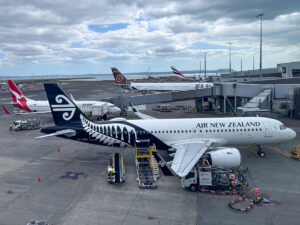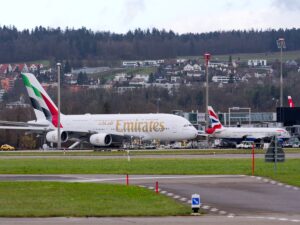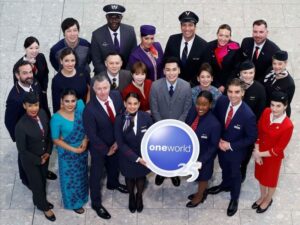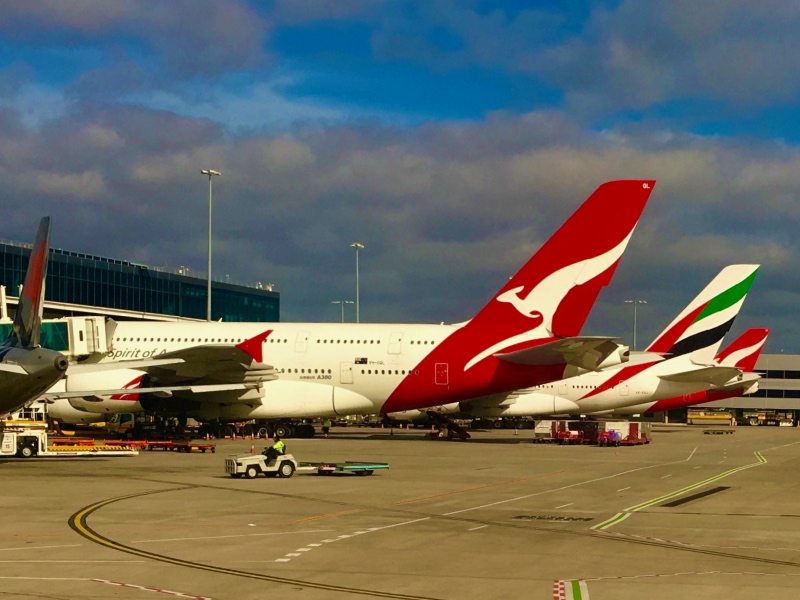
Qantas and Emirates have announced that they intend to seek regulatory approval to extend their partnership until at least 2028, with a possible further extension until 2033.
It’s a vote of confidence in the extensive alliance between Qantas and Emirates which will likely continue to benefit both airlines, even after Qantas resumes non-stop flights from Australia to London which overfly Dubai without stopping.
Launched in March 2013, the Qantas & Emirates alliance has been a win-win for both airlines and their customers on many levels.
Both carriers have benefited financially from the in-depth partnership, with 13 million passengers having flown on the joint network since 2013.
It has been good for Qantas Frequent Flyer members, who have enjoyed one-stop access to over 50 codeshare destinations in Europe, the Middle East and Africa via the Emirates network and the airline’s Dubai hub. Emirates Skywards members have similarly benefited from easy connections to destinations across Australia and New Zealand with Qantas. On average, over 13,000 Emirates passengers have travelled on Qantas domestic codeshare services each month since the partnership began.
Qantas Frequent Flyer members have also benefited greatly from access to Classic Flight Reward seats on Emirates. In fact, Qantas Frequent Flyer and Emirates Skywards members now have exclusive access to Emirates First Class award seats as Emirates has removed First Class award seat access to frequent flyers with all other partner airlines, including most recently Japan Airlines and Alaska Airlines.
The Emirates partnership still has a place
When Qantas began its partnership with Emirates in 2013, Qantas moved the stopover point on its London flights from Singapore to Dubai.
When Qantas exited Dubai in 2018, changing its stopover points to Singapore and Perth, there was some speculation that the Emirates partnership would lose its relevance. But Qantas CEO Alan Joyce believes the Emirates partnership remains as important as ever.
“The premise of our partnership with Emirates has always been that no airline can fly everywhere but combined we can fly to most of the places our joint customers want to travel to. And that we treat each other’s customers as our own,” Mr Joyce said.
“We know the international aviation market will take years to fully recover so close collaboration between airline partners is going to be more important than ever.”
Qantas now flies non-stop from Australia to London, and could launch direct flights in the future to cities like Frankfurt and Paris as it pushes forward with its Project Sunrise plans. But Qantas will never be able to provide one-stop connections on city pairs like Adelaide to Athens, or Brisbane to Dublin. This is where partnerships with other airlines come in.
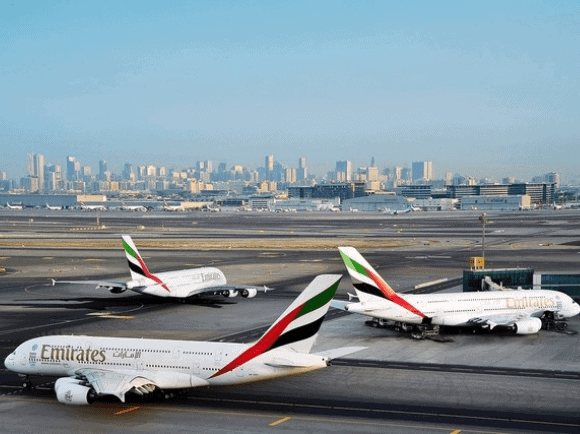
Regulatory approval pending
It will now be up to competition regulators to grant permission for Qantas and Emirates to continue their partnership beyond the current expiry date of March 2023.
This is not guaranteed, as the Australian Competition & Consumer Commission (ACCC) recently blocked a proposal for a joint venture between Qantas and Japan Airlines. But the market dynamics of the Australia-Japan market are very different to those of the Australia-Europe market, which has a lot more competition from many more airlines.
The Qantas & Japan Airlines agreement would have given the two airline groups a combined 85% market share between Australia and Japan, which is why it was rejected. An extension of the Qantas & Emirates alliance is much more likely to be approved because there are significant benefits to the flying public with minimal downsides.
Meanwhile, ACCC approval for Virgin Australia’s alliances with Etihad and Delta expired last year. Virgin’s Singapore Airlines alliance is due to expire on 15 October 2021. Virgin Australia has not applied for ACCC approval to renew any of these alliances.
Join the discussion on the Australian Frequent Flyer forum: Qantas and Emirates partnership extension
